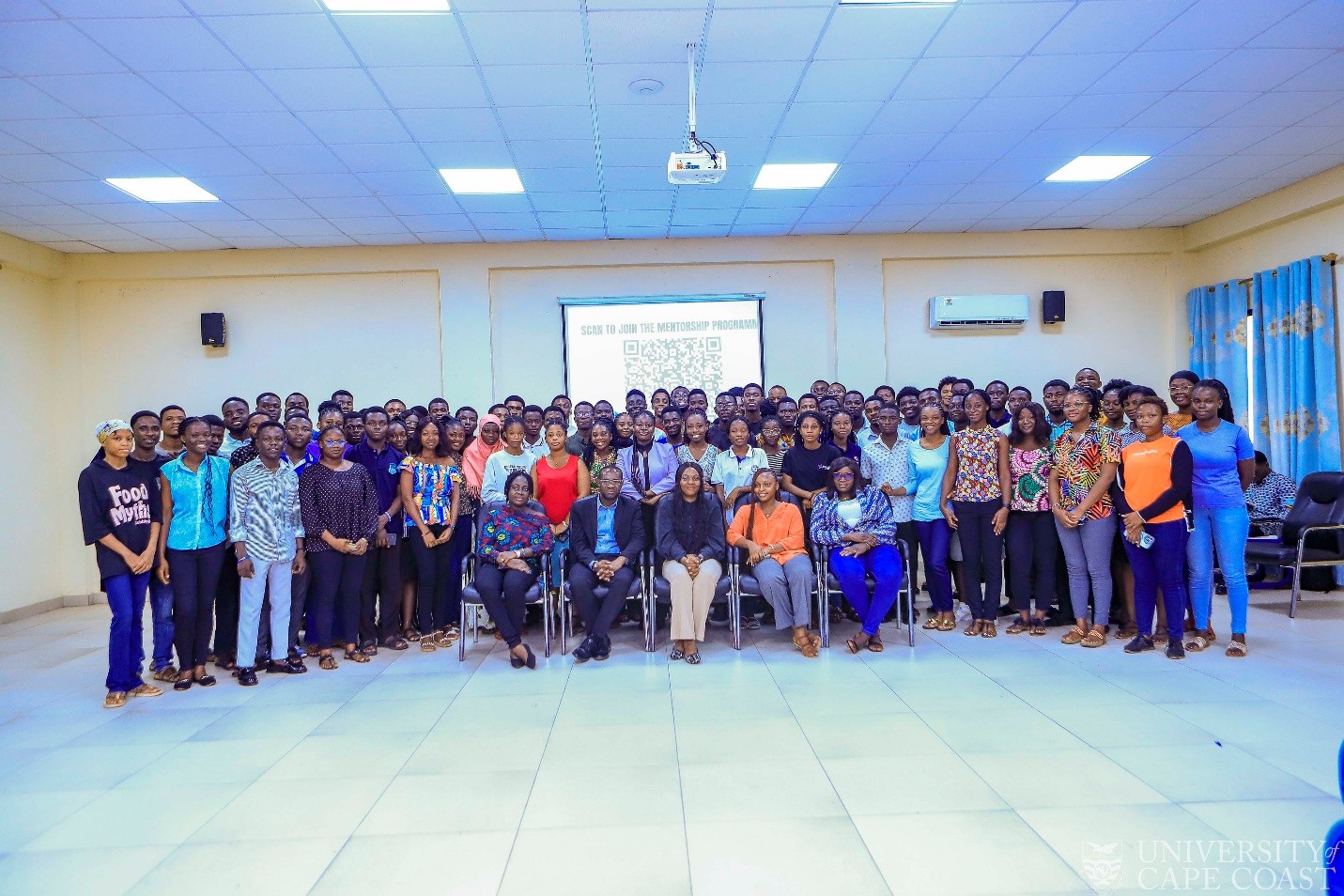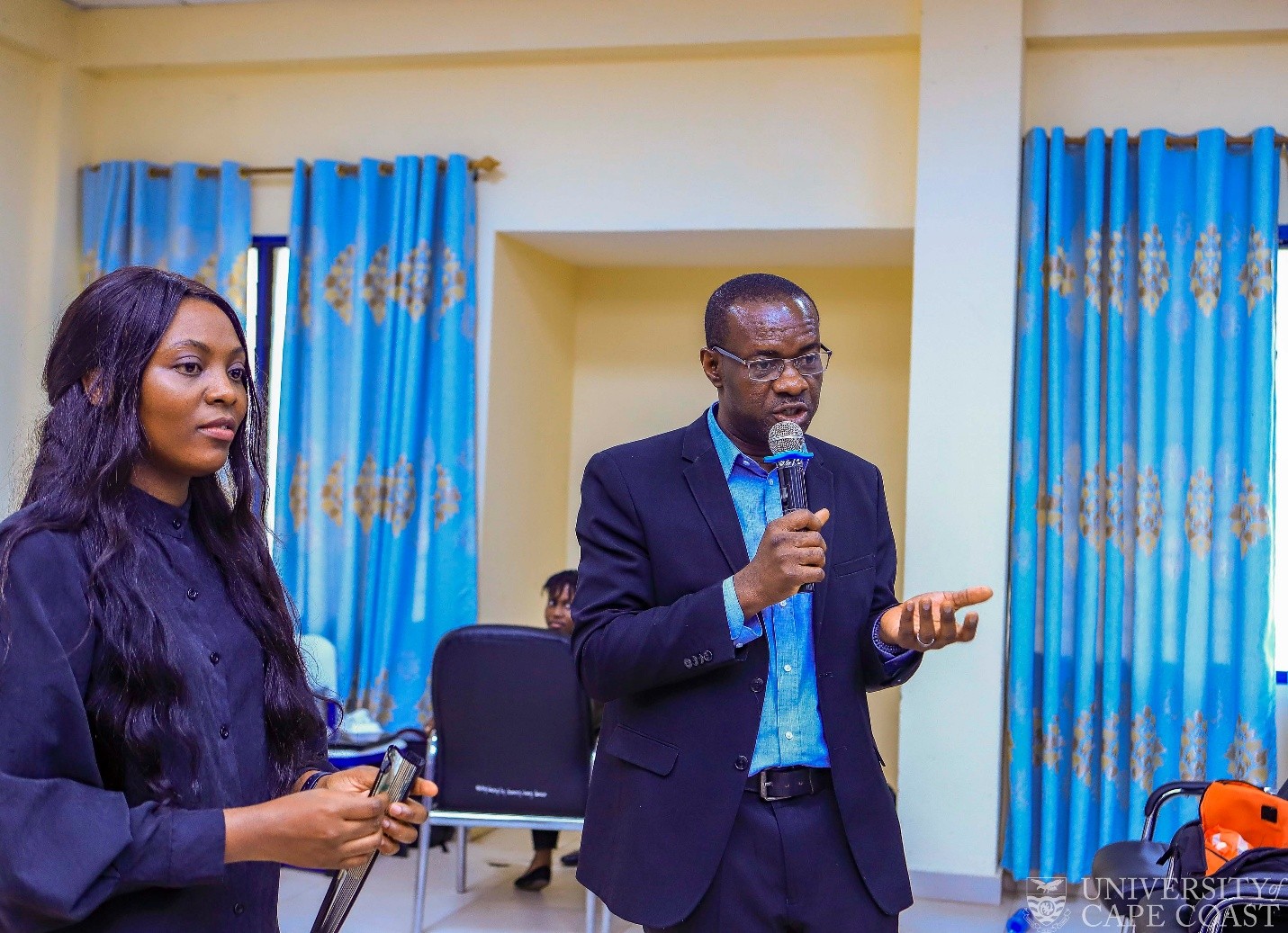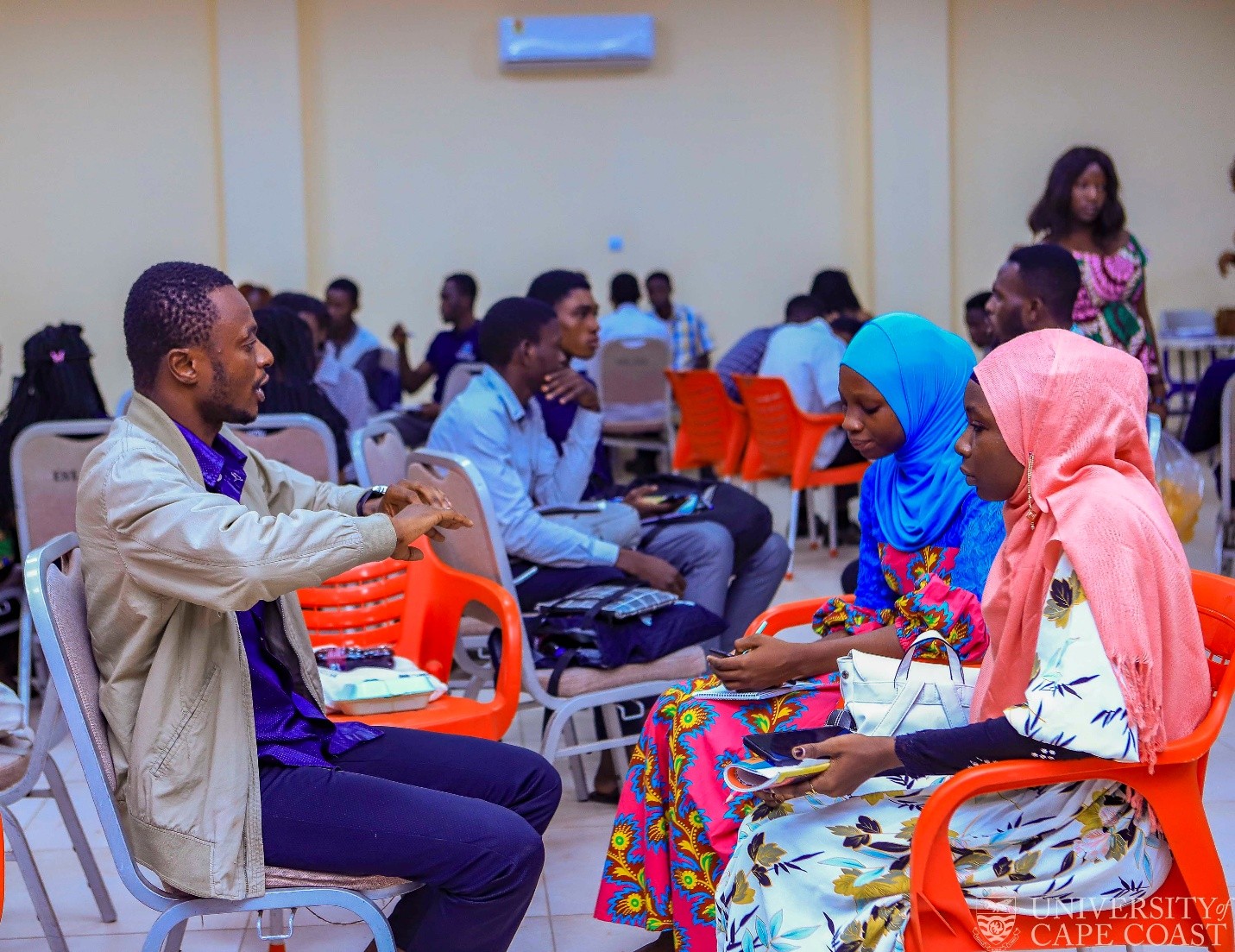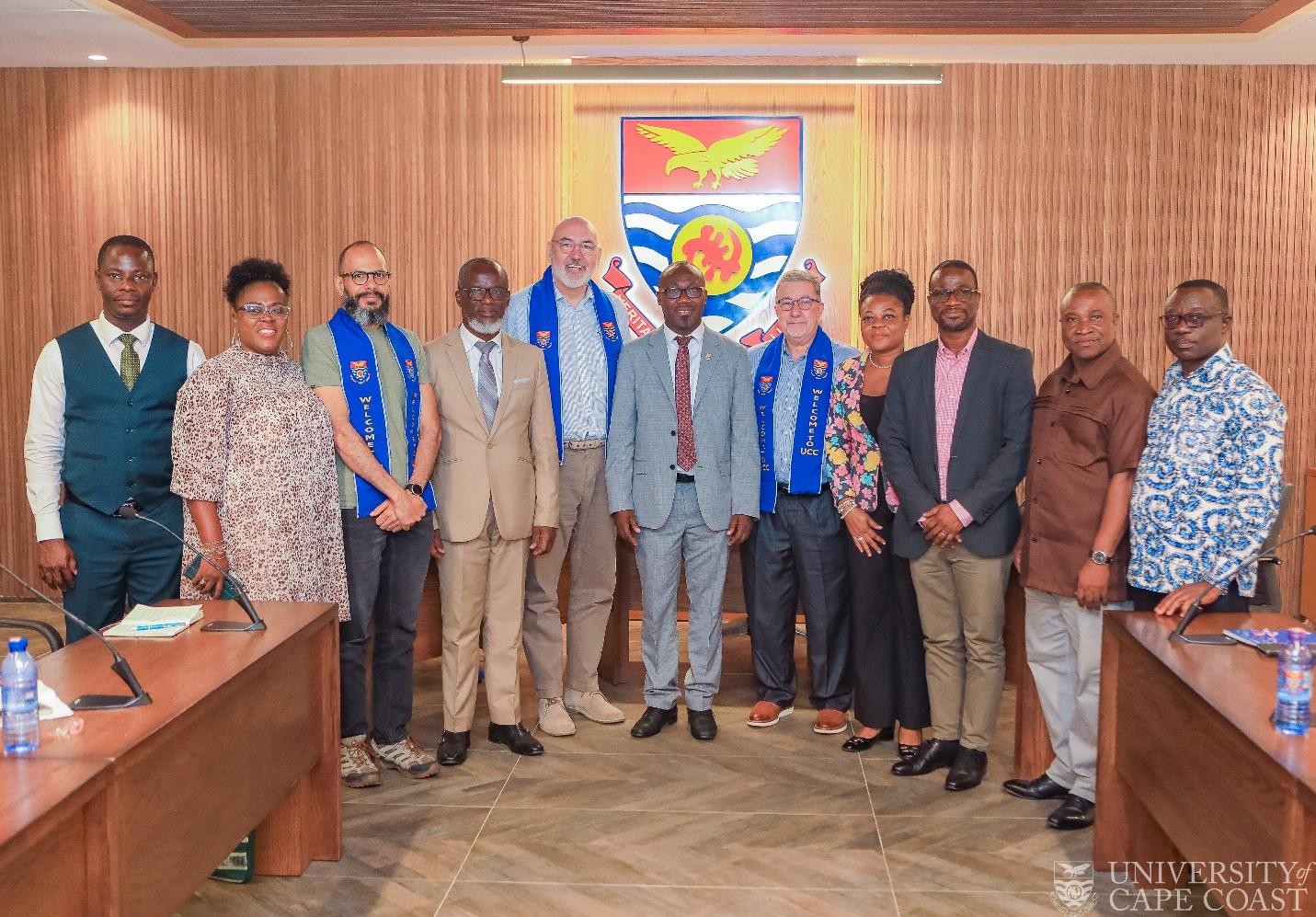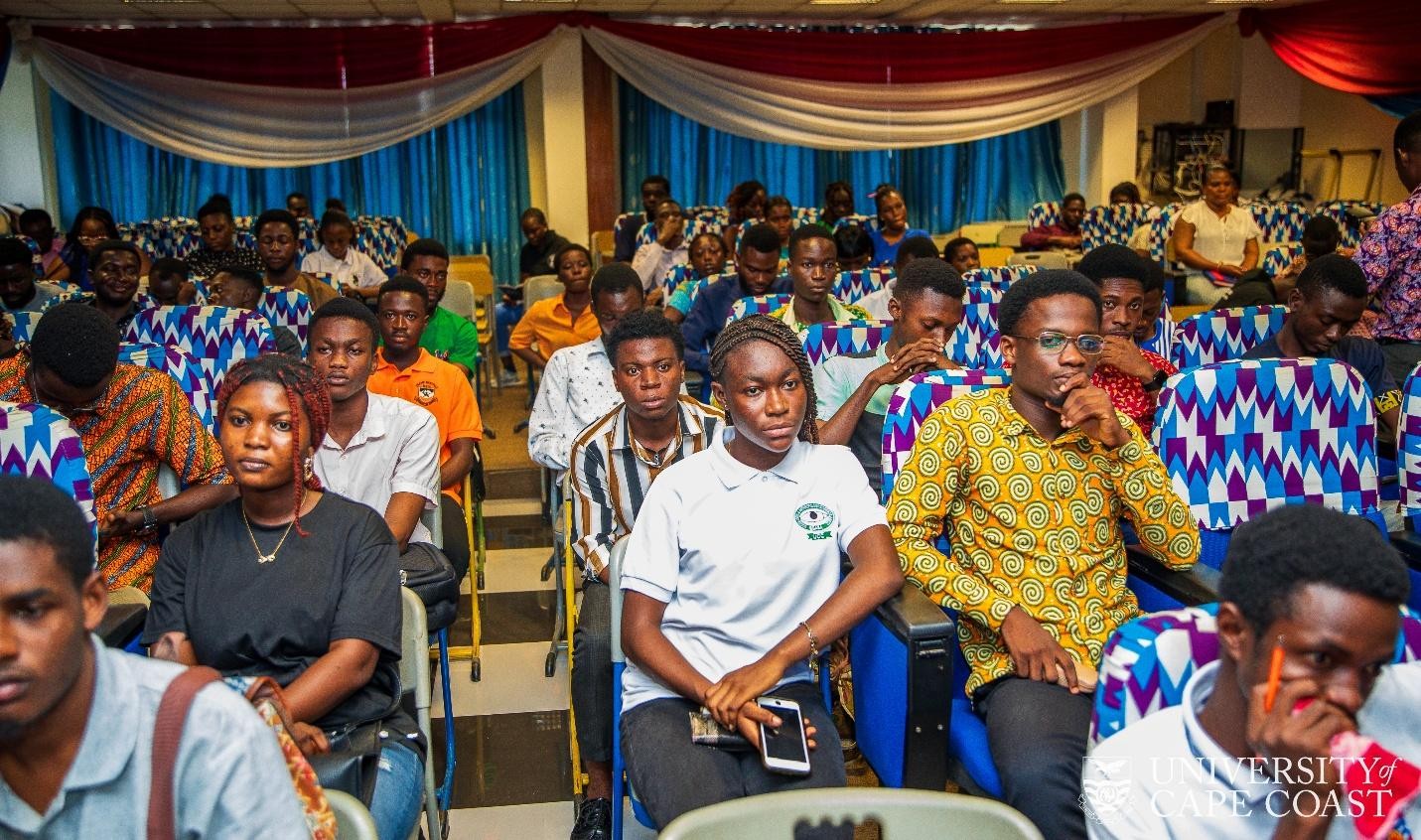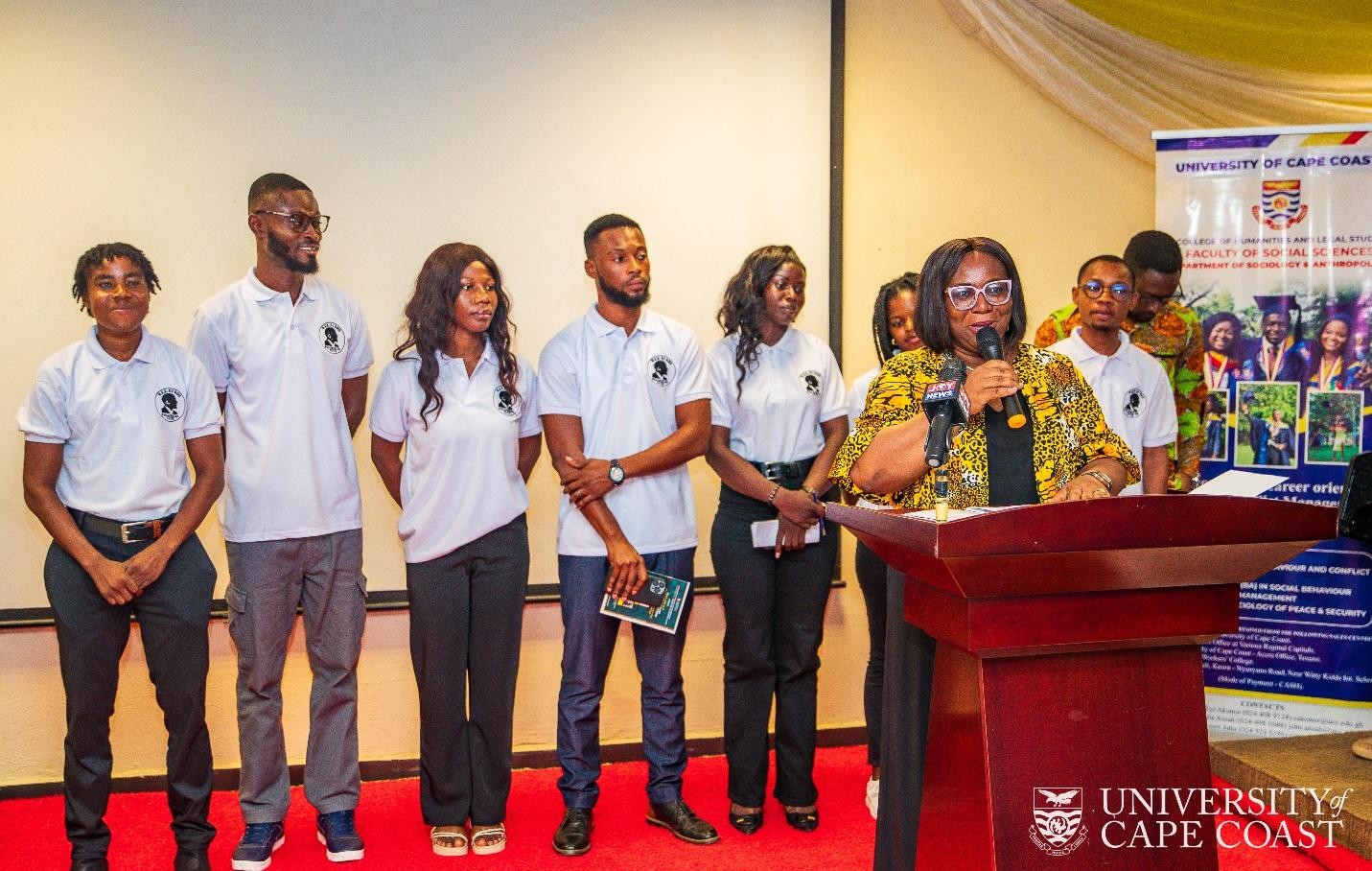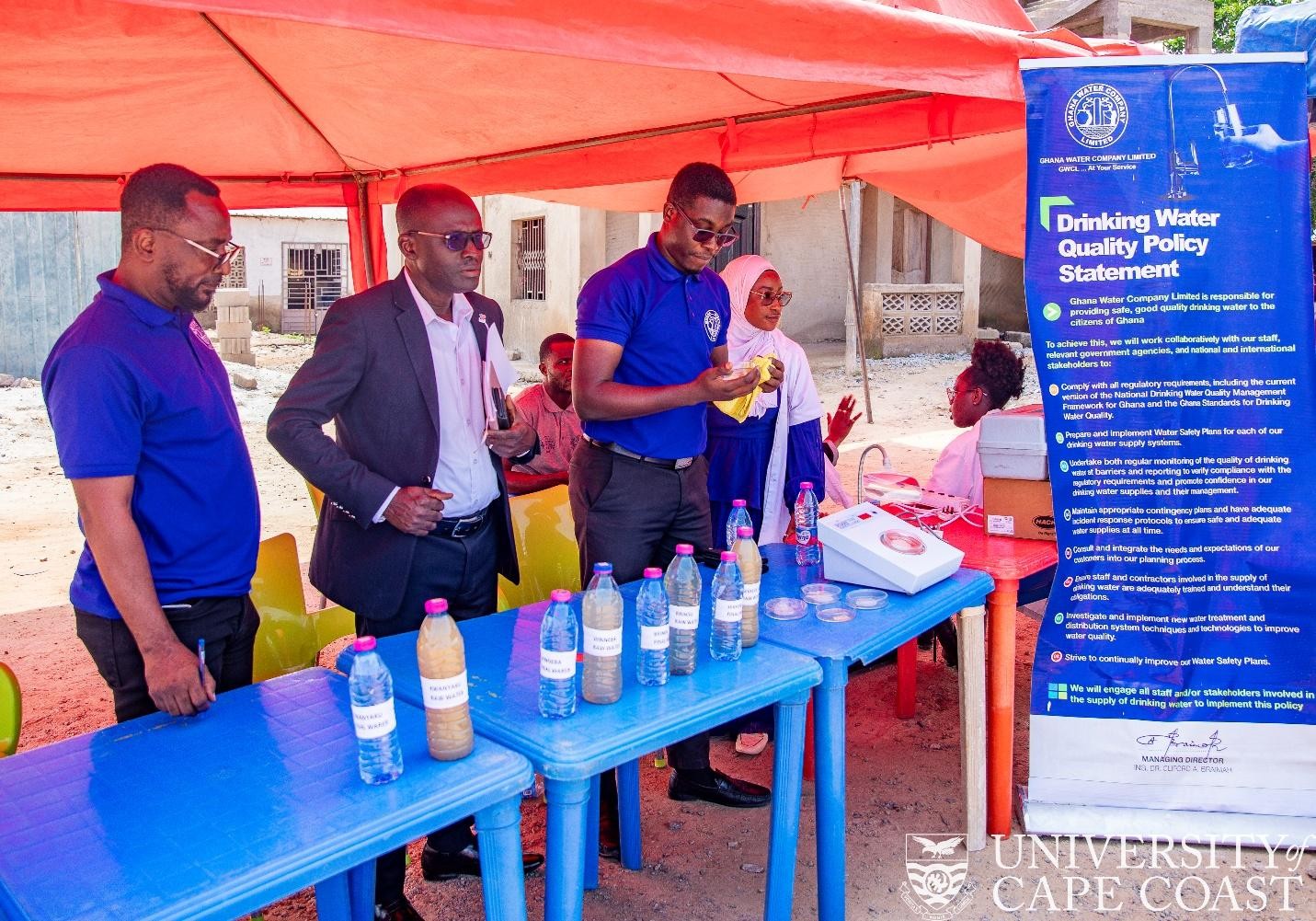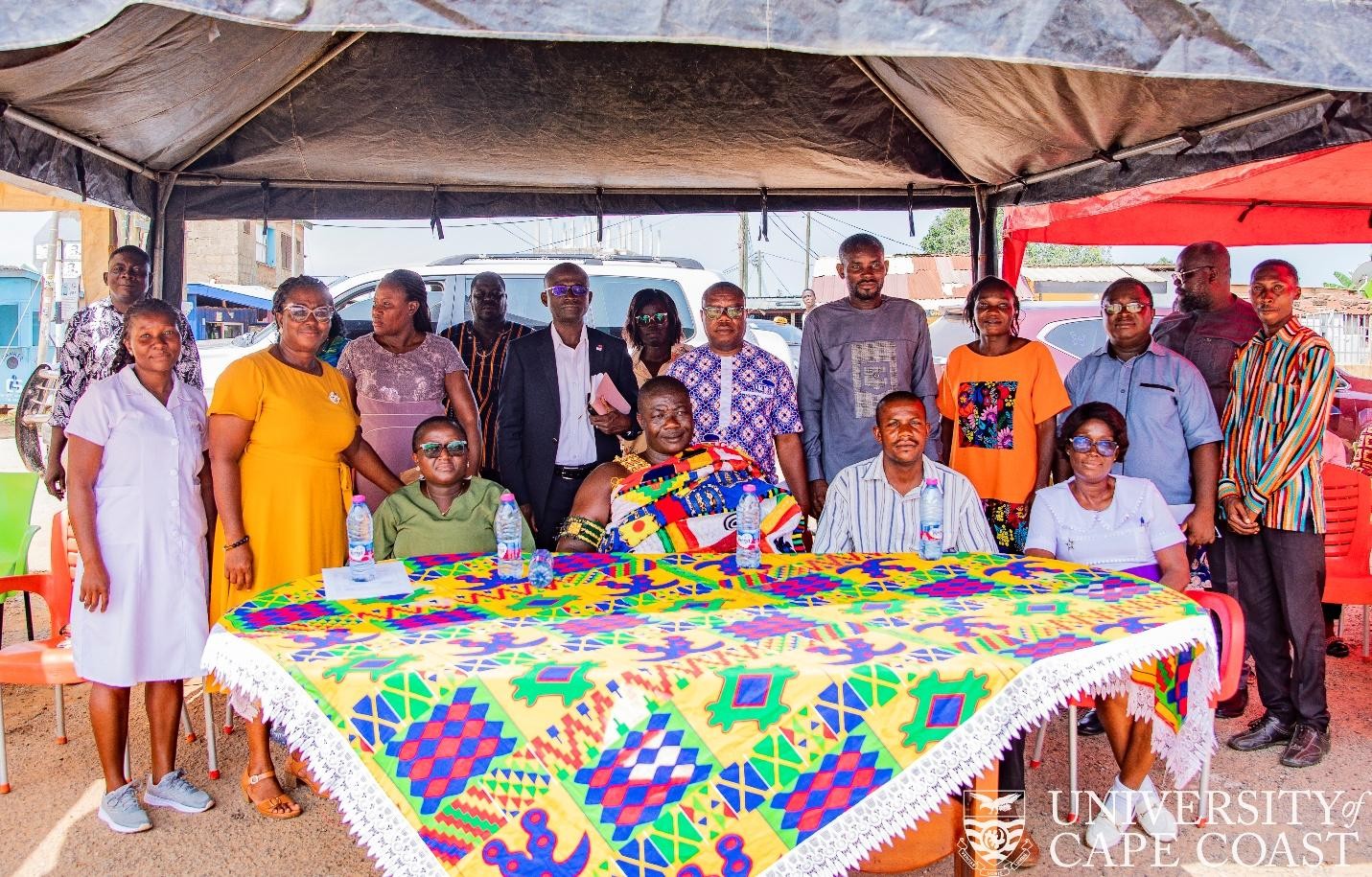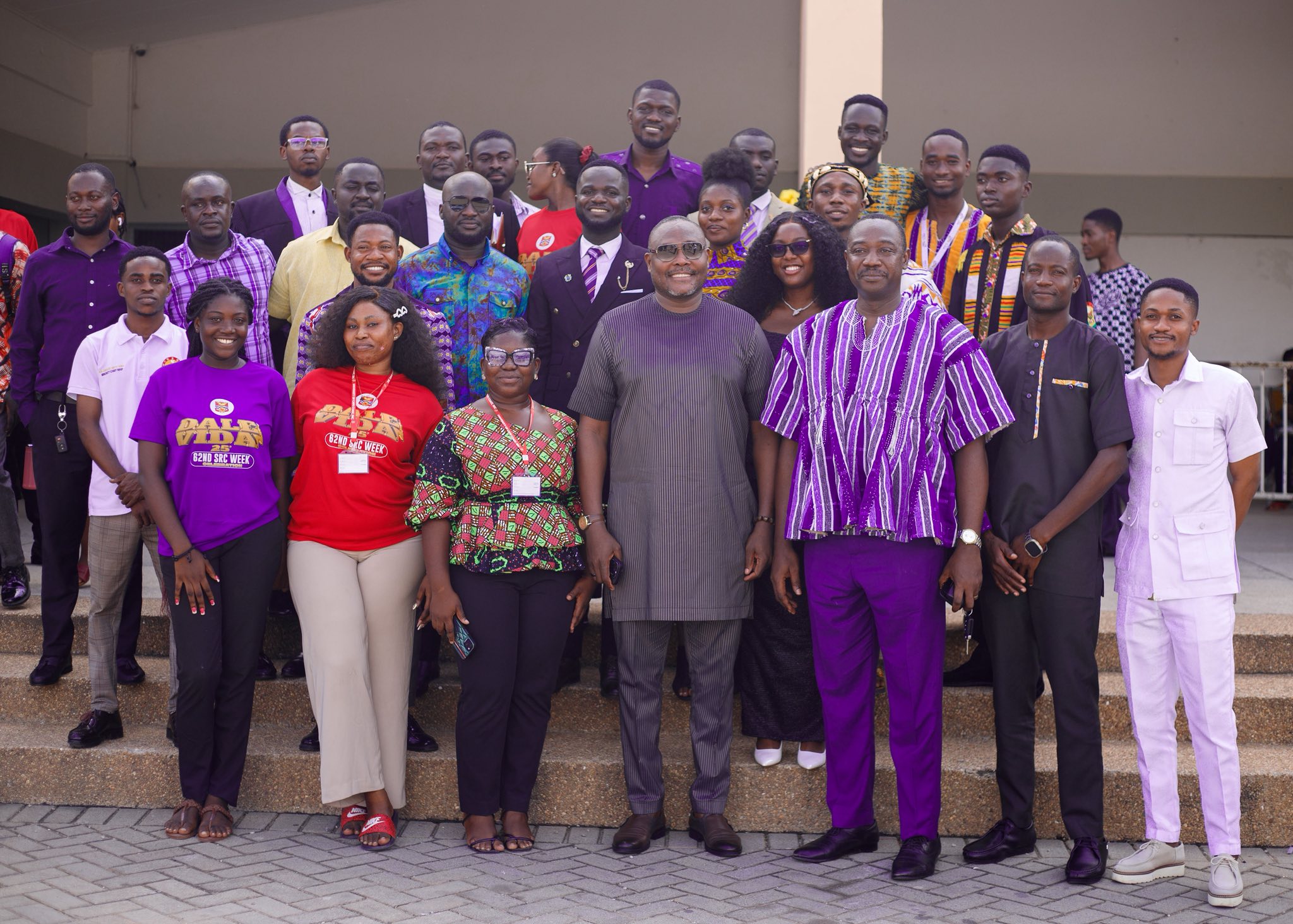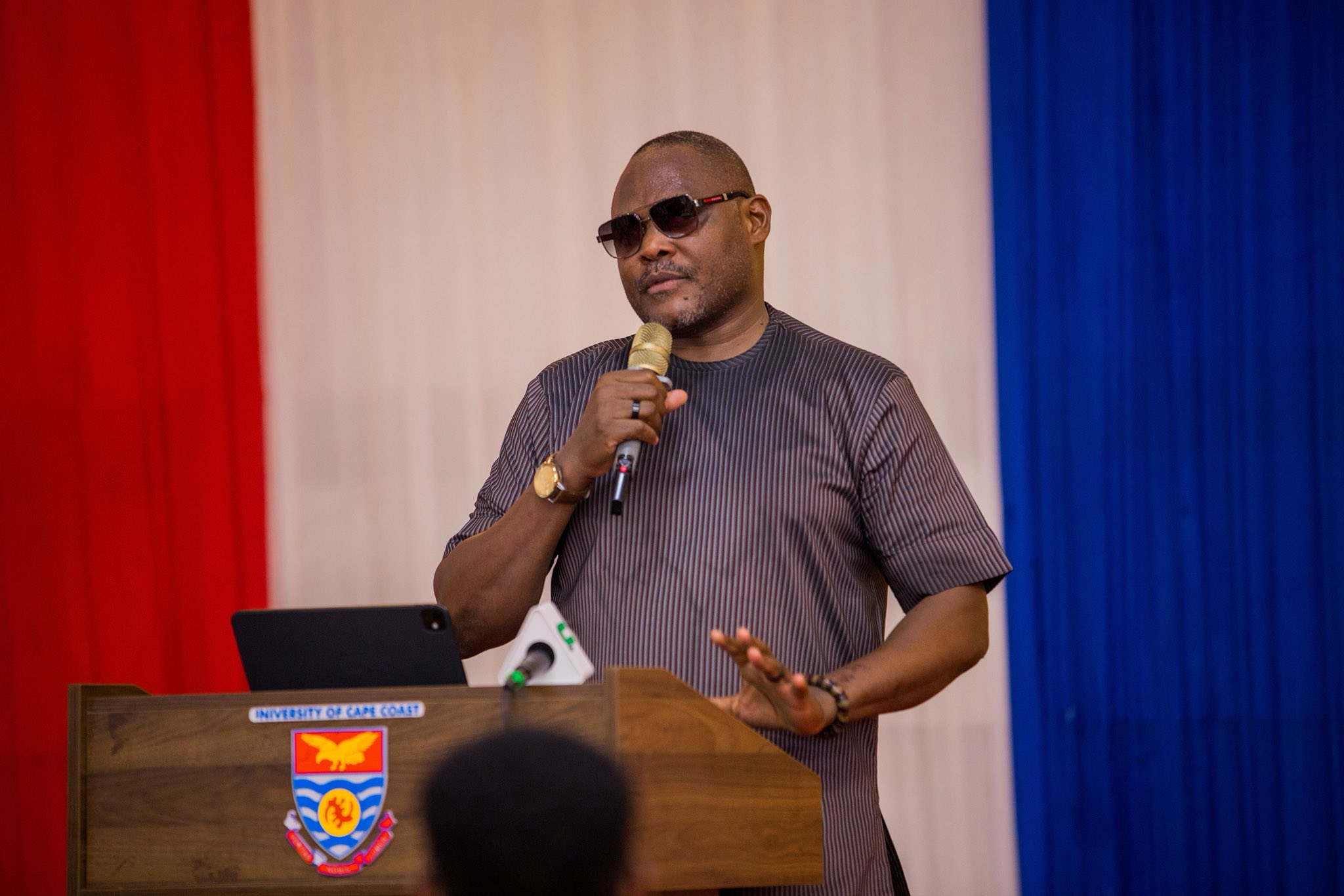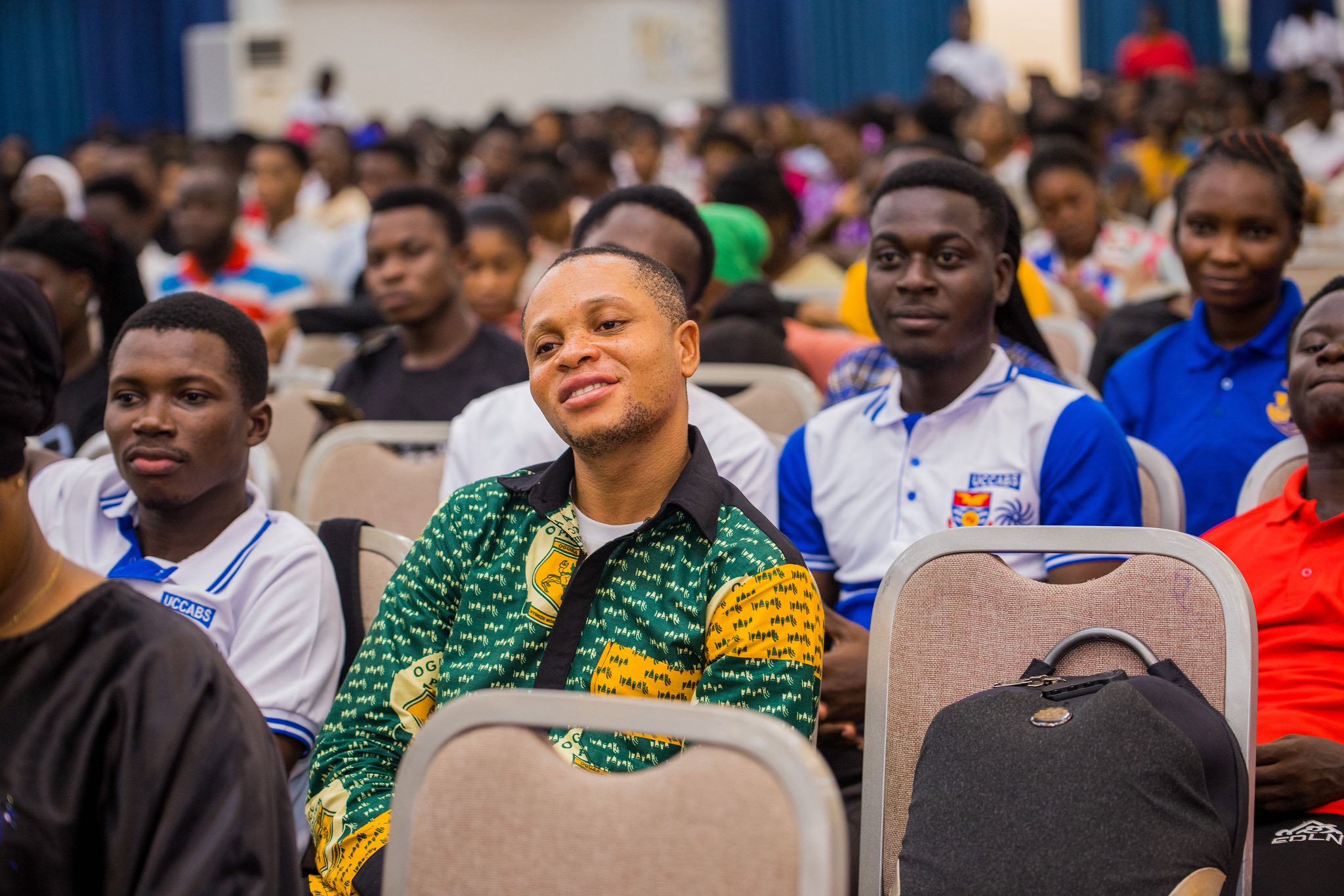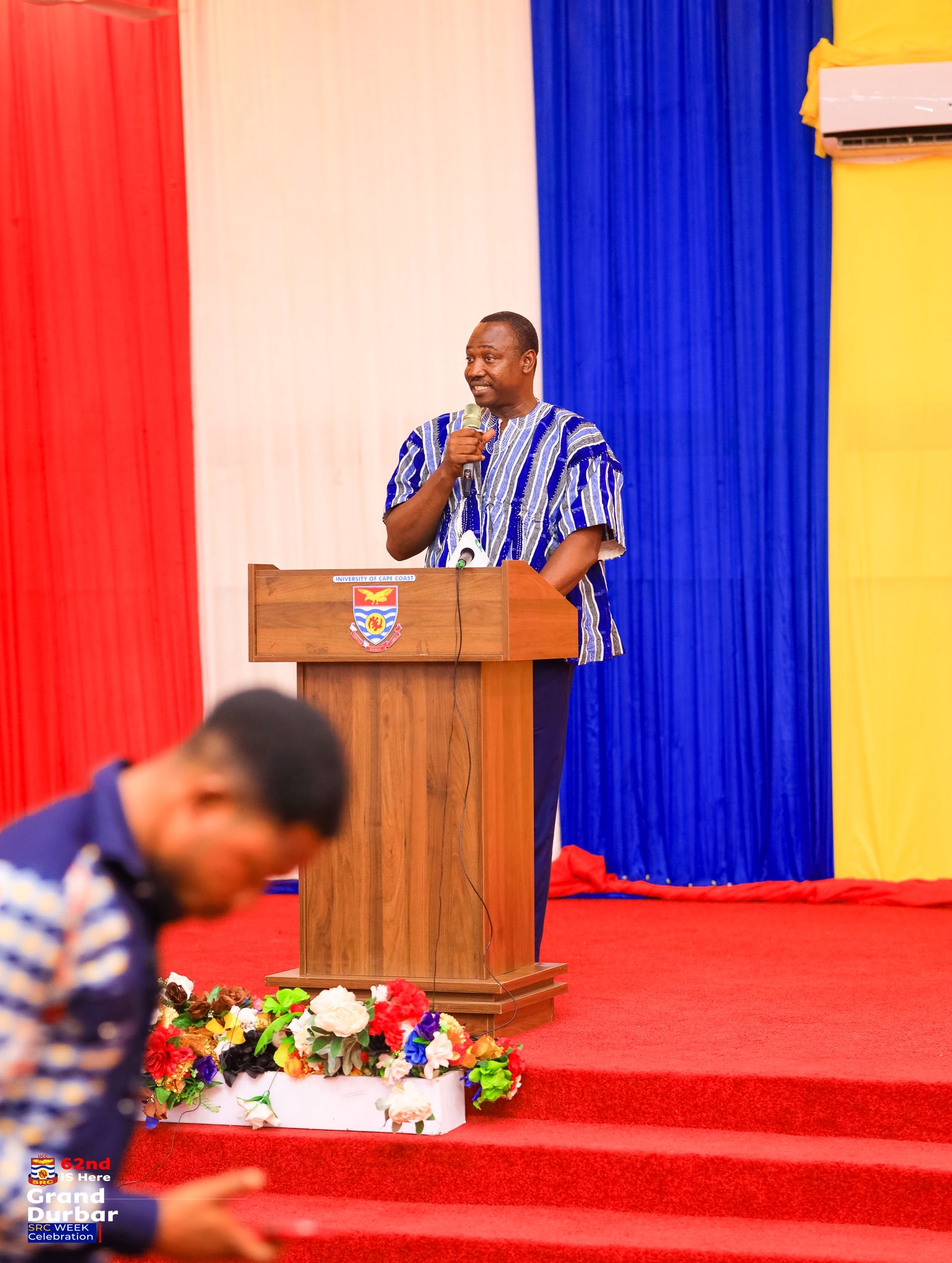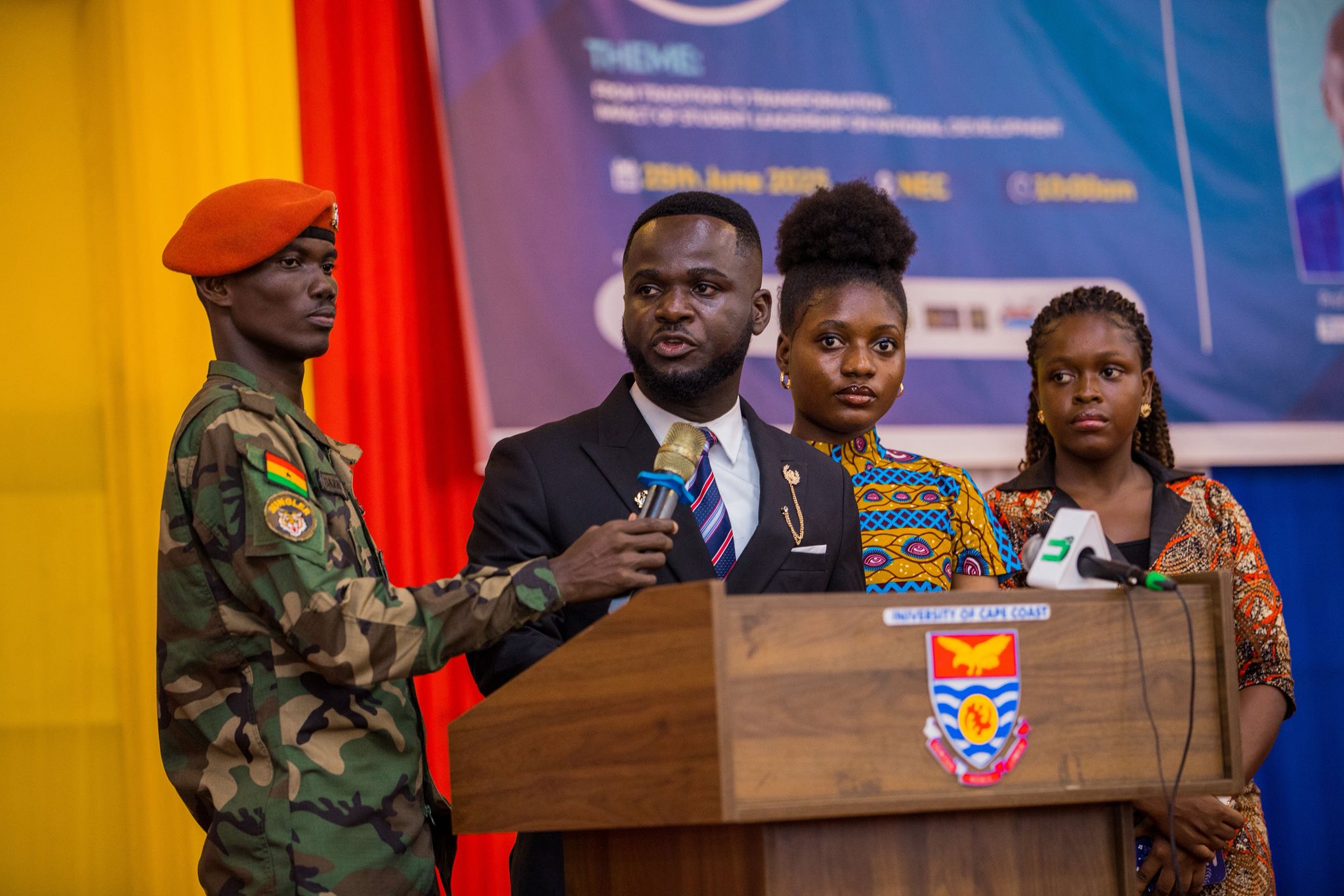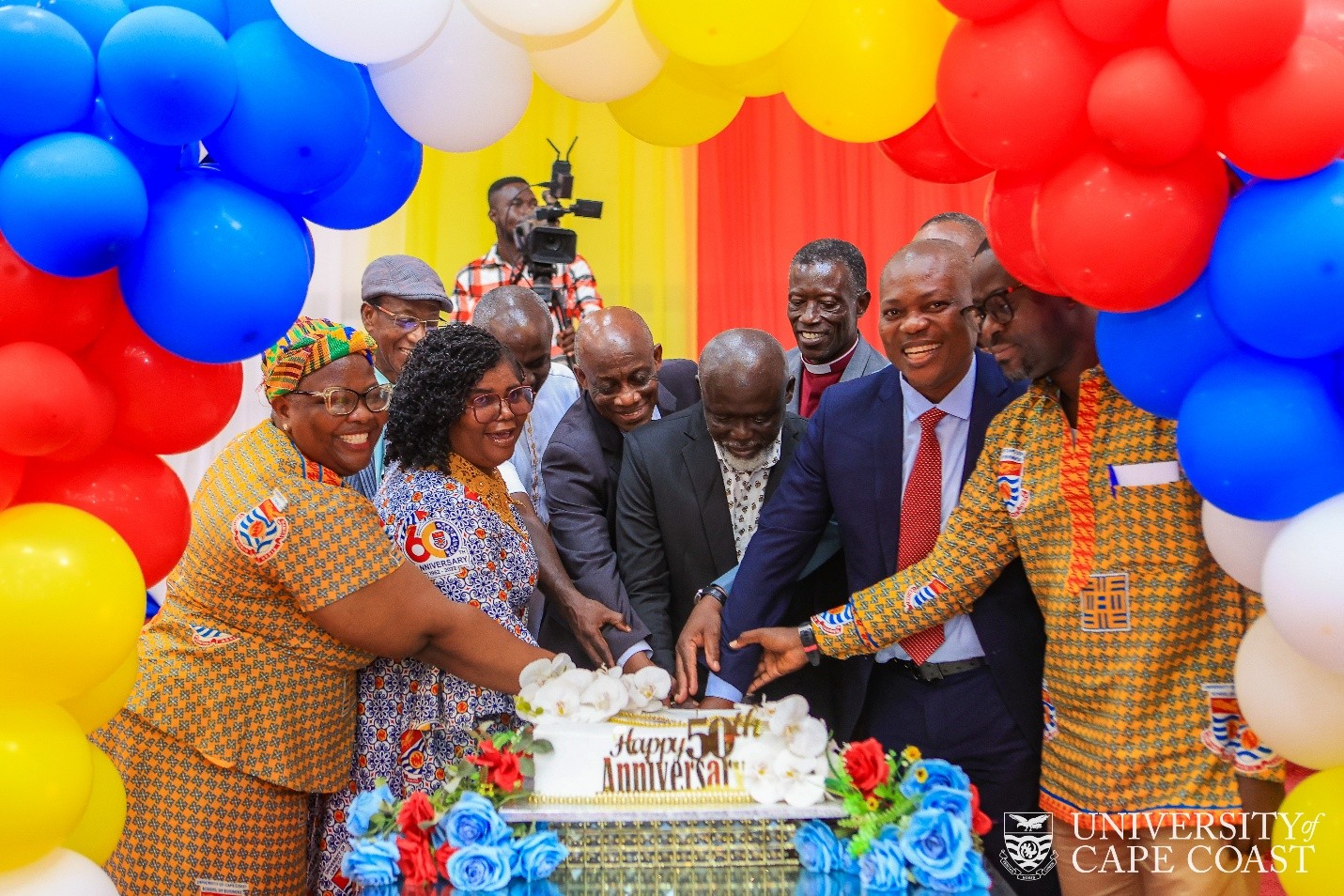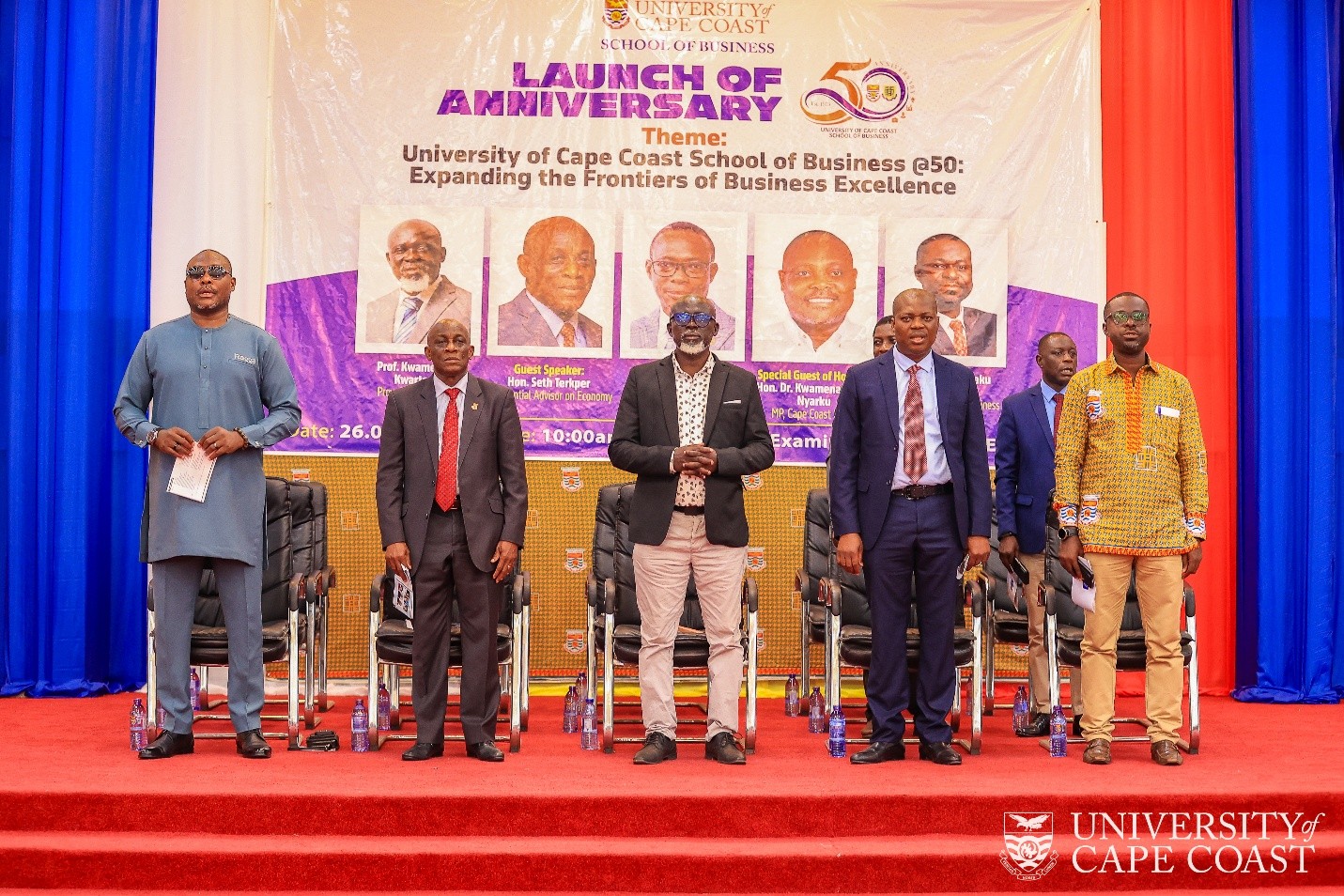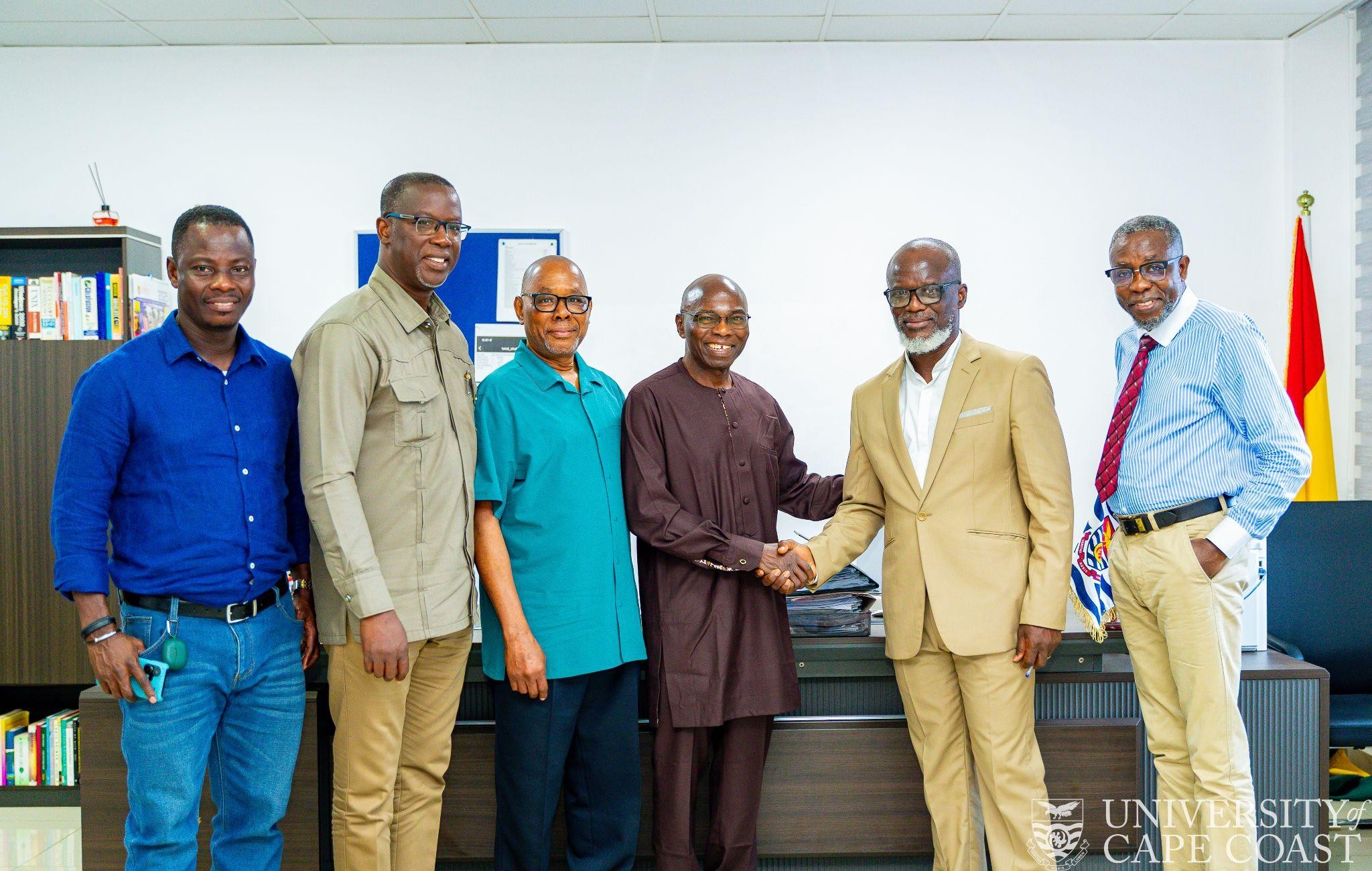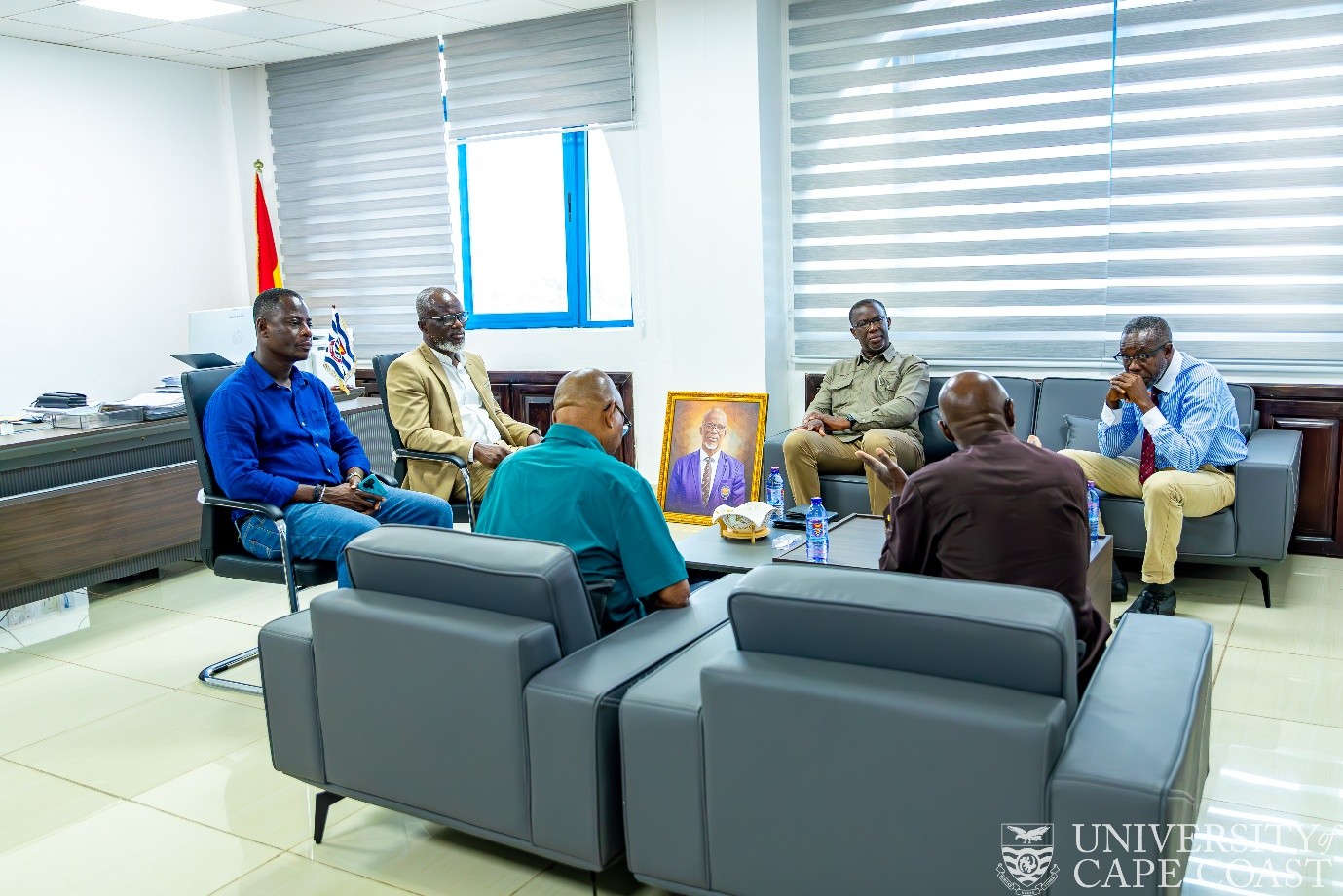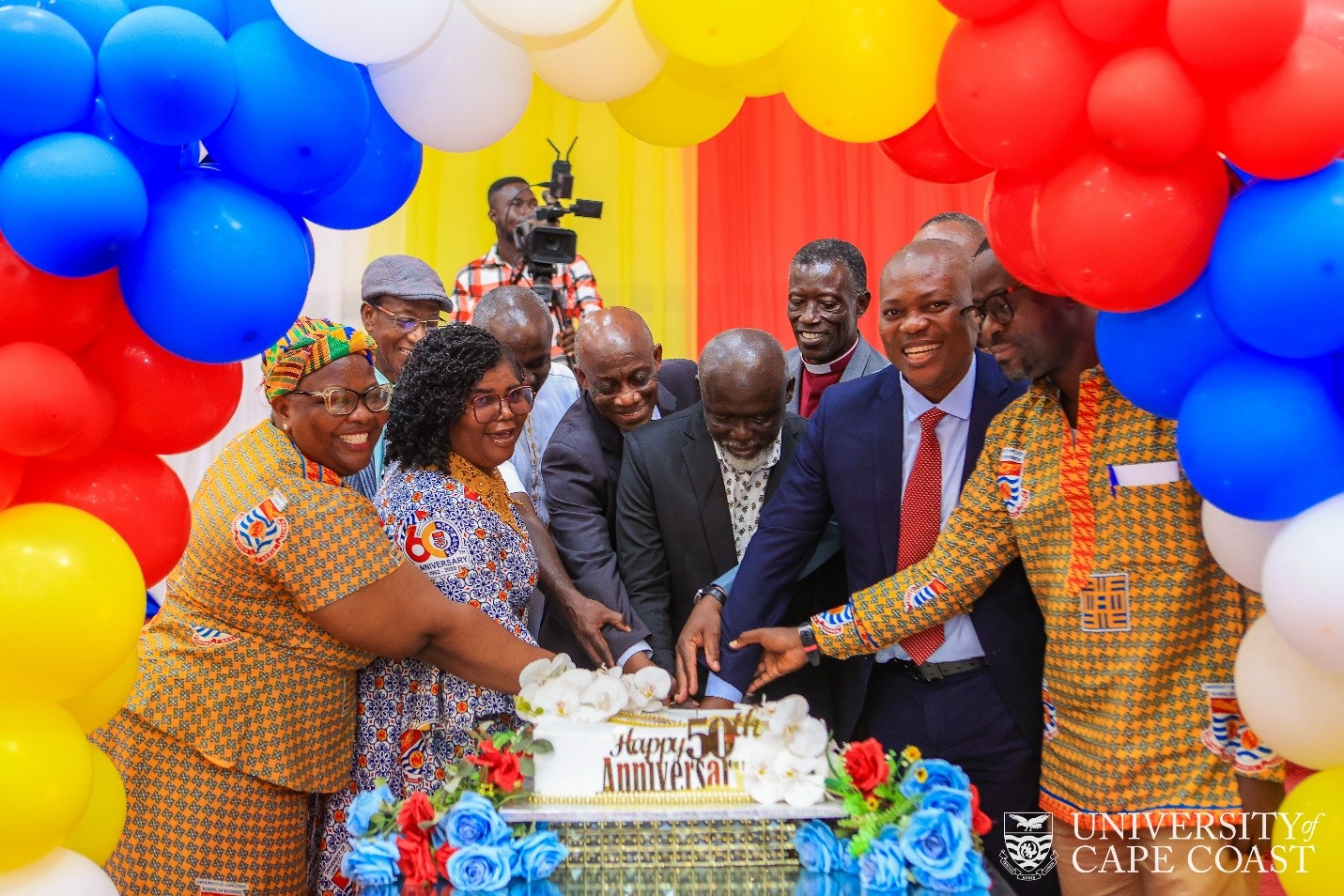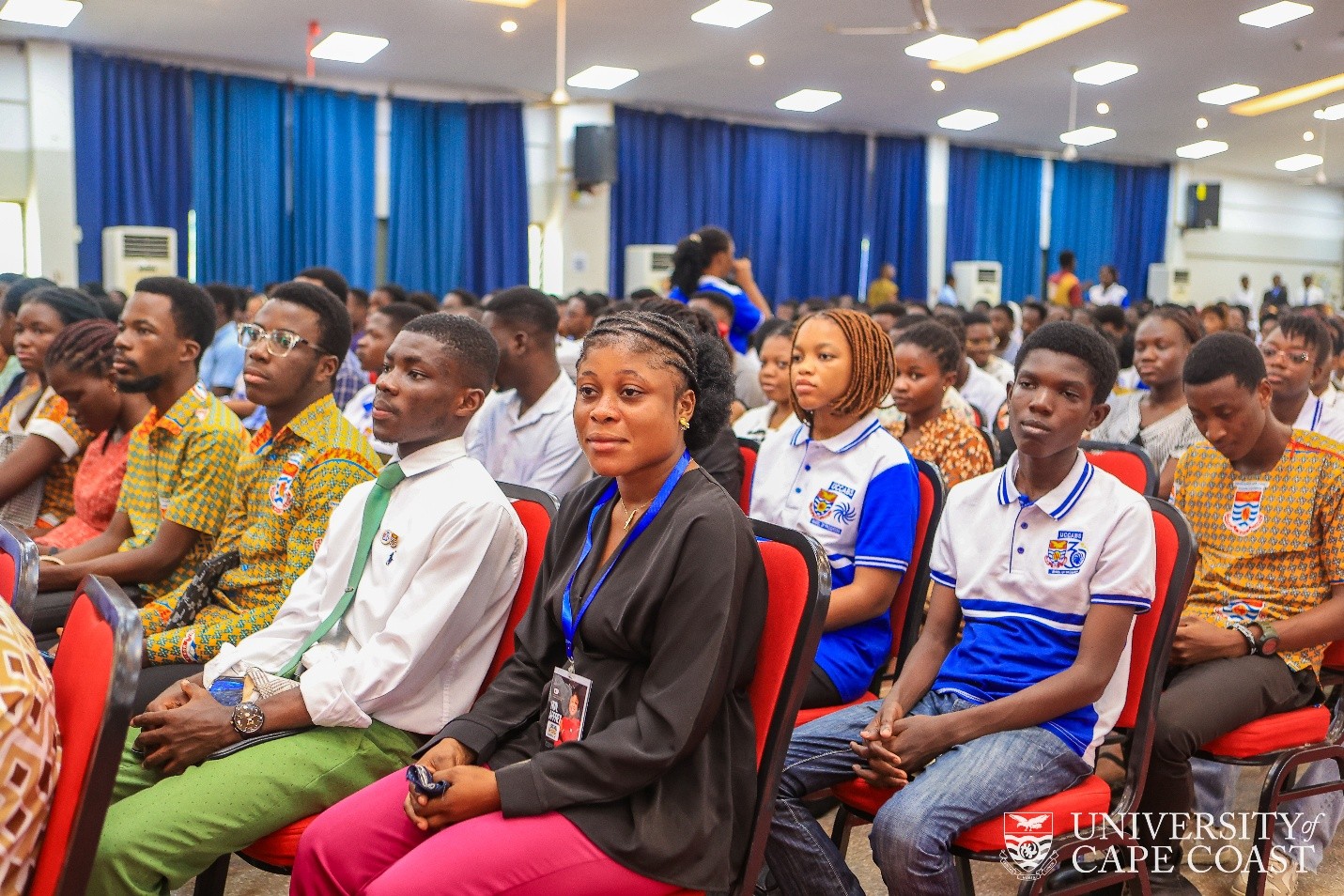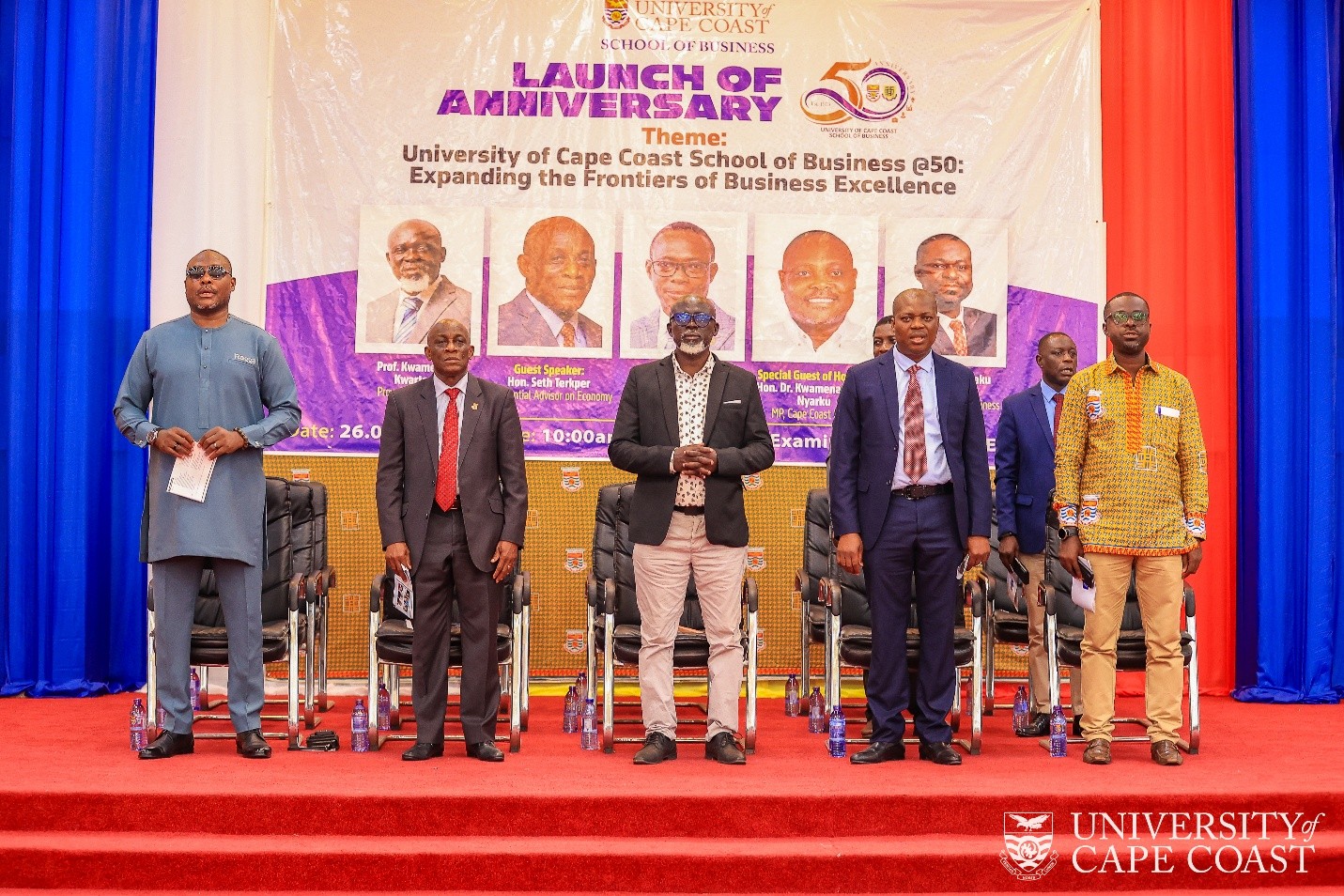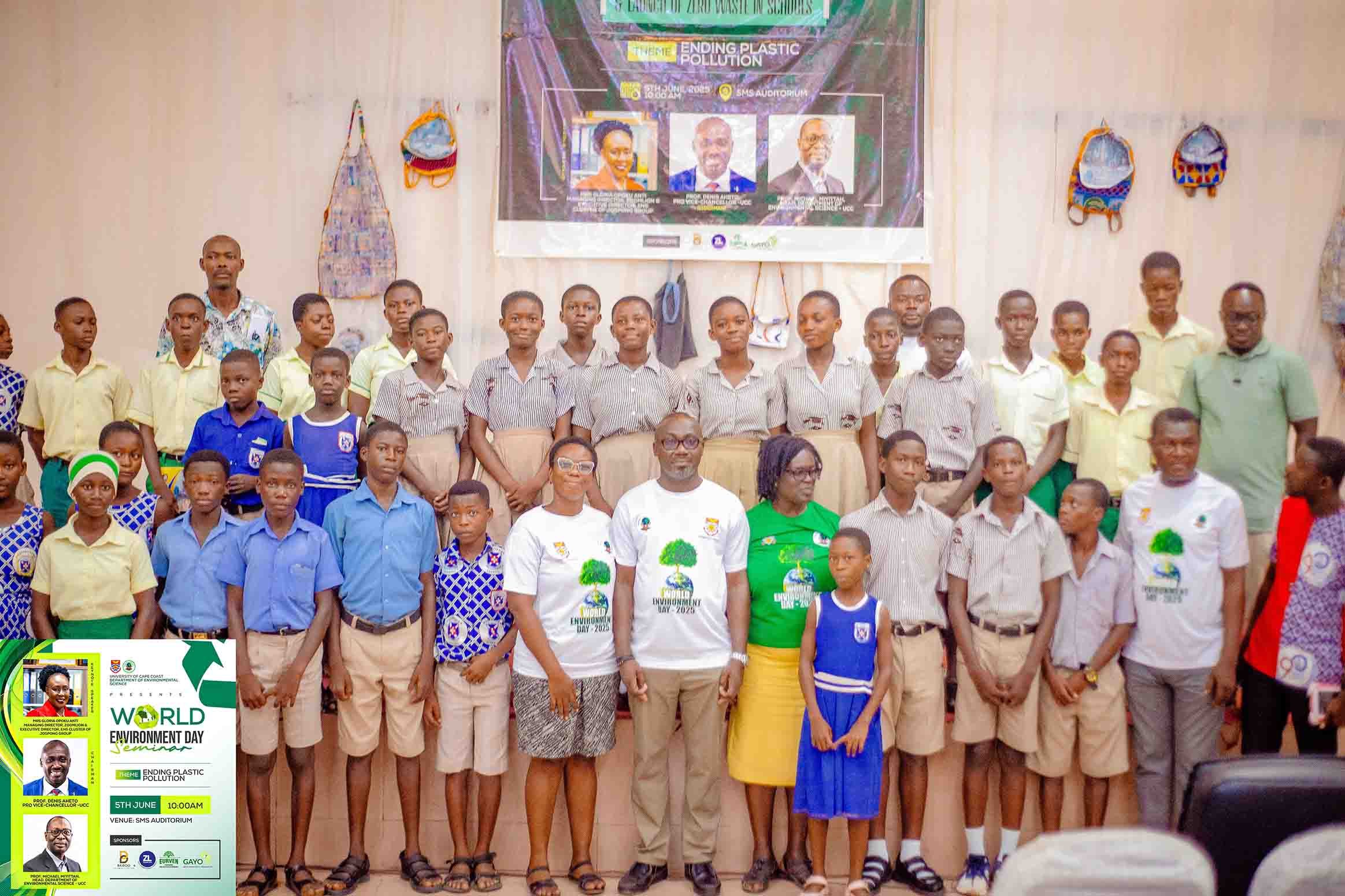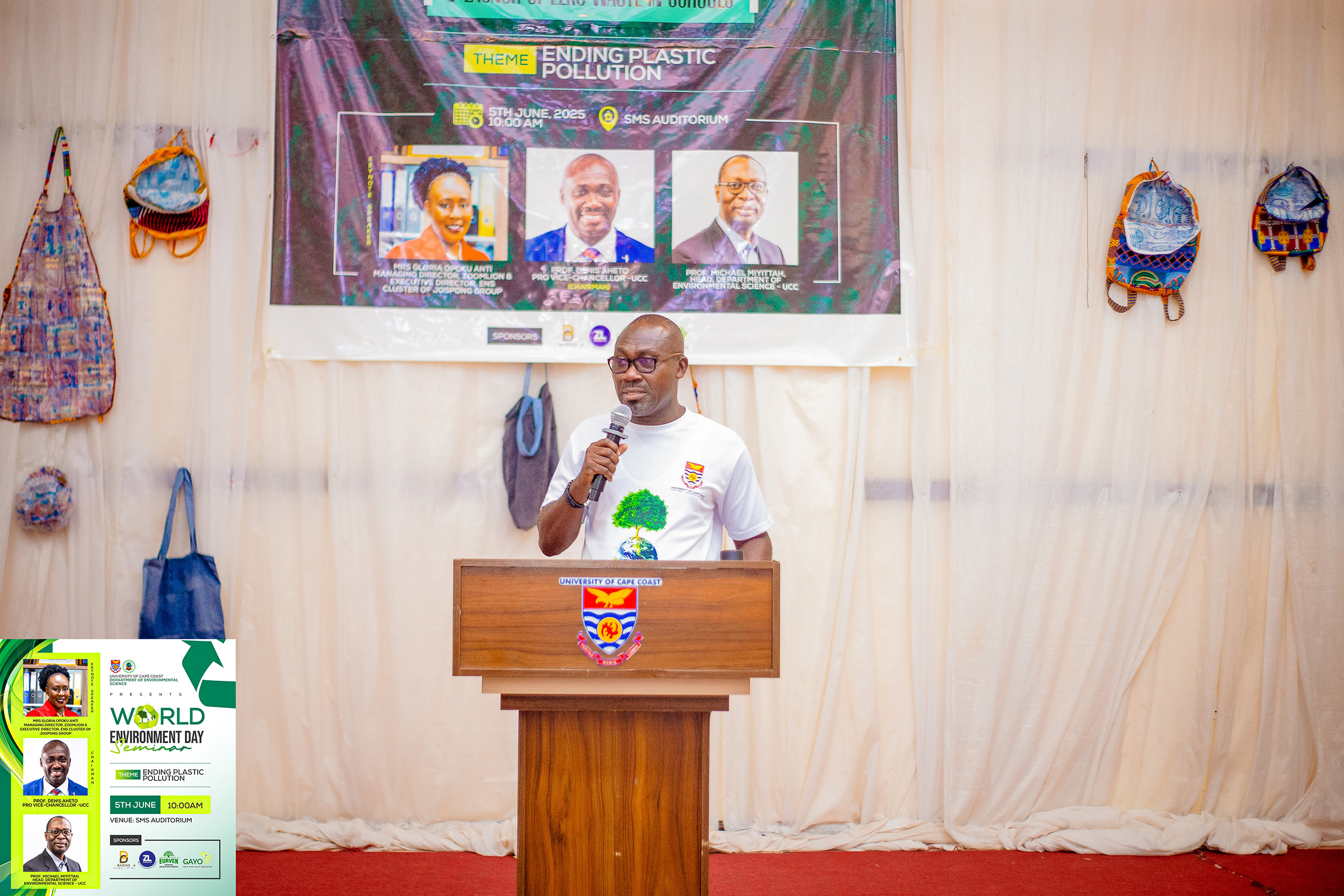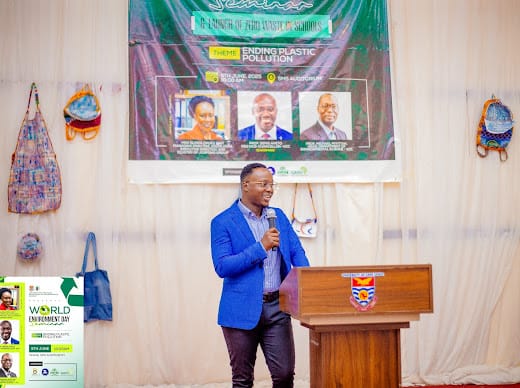The University of Cape Coast (UCC) has welcomed high-level delegations from the University of Cincinnati and Tulane University, USA, as part of efforts to foster collaboration in research, public health, and academic development.
The courtesy call, held at UCC, marked a significant step toward strengthening international ties through academic exchange, collaborative projects, and institutional development.
The delegation from the University of Cincinnati was led by Ms. Elizabeth Kiscaden, Dean and University Librarian, while Tulane University was represented by Prof. Thomas LaVeist, Dean and Weatherhead Chair, and Prof. Samuel Kakraba, Assistant Professor of Biostatistics and Data Science.
As part of the visit, UCC and Tulane University signed a Memorandum of Understanding (MoU), which outlines collaboration in curriculum development, joint research, faculty and student exchange, and shared resources, particularly in public health and information science.
Speaking at the event, Ms. Kiscaden highlighted the broad goals of the partnership.
“We have a plan to exchange through our libraries, and also to seek funding. I’m looking forward to a successful partnership,” she commented.
She noted that their plan includes mutual exchange of expertise, resource sharing, and joint funding proposals, especially in digital accessibility and AI-enhanced library systems.
On behalf of Tulane University, Prof. Thomas LaVeist expressed confidence in the collaboration.
“We’re excited about this partnership and the opportunity to collaborate in the area of public health and beyond. This is the beginning of a long-term relationship that we believe will produce impactful results.”, he stated.
Prof. Samuel Kakraba indicated that their team was enthusiastic about joint research and innovation with UCC in addressing emerging public health challenges.
The Pro Vice-Chancellor, Prof. Dennis Worlanyo Aheto, affirmed the University’s dedication to such global partnerships.
“We are proud as a university to welcome you and partner with you. Our University is student-centered; that is why over the past five years, we have championed entrepreneurship and innovation,” he highlighted.
Prof. Aheto added, “We hope that the collaborations will expand beyond the faculties you are already working with, and that the activities in the MoU will not be left on the shelf.”
The Registrar, Gideon Enoch Abbeyquaye (Esq), encouraged both institutions to “Work together and learn from each other.”
The UCC Librarian, Dr. Mac-Anthony Cobblah, added that UCC and the University of Cincinnati have begun collaboration to exchange library resources, and were committed to the success of the MoU.
Source: Documentation and Information Section-UCC


